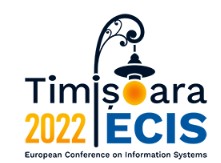Paper Number
1427
Abstract
Conversational agents (CAs) equipped with human-like features (e.g., name, avatar) have been reported to induce the perception of humanness and social presence in users, which can also increase other aspects of users’ affection, cognition, and behavior. However, current research is primarily based on self-reported measurements, leaving the door open for errors related to the self-serving bias, socially desired responding, negativity bias and others. In this context, applying neuroscience methods (e.g., EEG or MRI) could provide a means to supplement current research. However, it is unclear to what extent such methods have already been applied and what future directions for their application might be. Against this background, we conducted a comprehensive and transdisciplinary review. Based on our sample of 37 articles, we find an increased interest in the topic after 2017, with neural signal and trust/decision-making as upcoming areas of research and five separate research clusters, describing current research trends.
Recommended Citation
Greulich, R. Stefan and Brendel, Alfred Benedikt, ""Feel, Don't Think" Review of the Application of Neuroscience Methods for Conversational Agent Research" (2022). ECIS 2022 Research Papers. 79.
https://aisel.aisnet.org/ecis2022_rp/79
When commenting on articles, please be friendly, welcoming, respectful and abide by the AIS eLibrary Discussion Thread Code of Conduct posted here.


